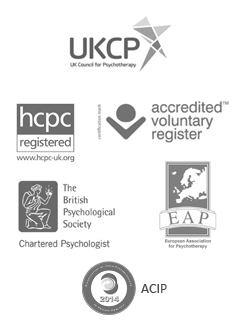When Despair Affects Your Desire
Request a Question of Your Own!
Writer’s Response
I’m not sure what’s wrong with me. I can not find such enjoyment in eating, so I envy those who do. Most issues don’t interest me at all. I don’t feel depressed or sad very frequently; instead, I really feel empty and bored. If I ever feel inspired to do something, it vanishes in an instant. I used to like working out at the gym, and it felt fantastic. That occurred five years ago. I find it difficult to find myself to work out right then. I don’t think content being around associates or fresh acquaintances whenever I sit with them; neither do I experience any sense of satisfaction. I adore math, science, and computer science, but whenever I find myself involved in these fields, I just can’t seem to concentrate on them because I discover that doing the things I enjoy the most is not enjoyable. I don’t experience any sense of relief or happiness. I experience this overwhelming sense of emptiness once or twice a month, lasting from weeks to months. Maybe I don’t actually care to eat or drink because I have no interest in doing so. This doesn’t appear to be melancholy. That’s feasible, right?
Response from a psychologist
Anhedonia, a significant aspect of sadness, is what you describe in large part. Anhedonia is simply the ability to enjoy activities that are typically thought to be pleasurable or pleasant. It frequently manifests as a lack of desire to engage in the activities you typically enjoy, also known as” avolition ,” or as the loss of motivation to do the things you enjoy doing. Some of my patients have depression as a major component of their depression, maybe even more so than simply feeling down or depressed. Many people describe it as persistent feelings of loneliness, never from monotony but rather from hopelessness, loneliness, or isolation. I typically observe depression as a factor in decreased interpersonal skills and sex drive.
Although depression is most usually linked to depression, it can also be found in less frequently in psychosis, anxiety, and personality disorders. According to some experts, depression may cause the brain’s pleasure facility to shut down, making it difficult to feeling nice and essentially limiting the amount of satisfaction we may experience. Others have argued that anhedonia restricts how much we can feel good, so even when we do feel pleasure, it doesn’t last long enough to be significant.
Try website counseling to get physically matched.
( Please read the crucial explanation below. )
Regardless of the cause, lethargy is frequently quite difficult and can hinder depression recovery by making it harder to work, advance, and make an effort. It can be challenging to muster the motivation to move ahead, particularly when you don’t feel like it. It is necessary, though, to aid in your treatment. Making an effort to maintain as much of your regular schedule as you can can have a significant impact. Fighting those wants can help you get out of the way you’ve been feeling, even though lethargy and depression can make us want to retreat, stay in bed all time, and ignore the relationships we need. Getting out of bed does occasionally be the first step. next putting on clothes. therefore a meal. finally start taking the next step. Start off by taking small steps at first. Before you even start to consider the next step, discipline yourself through each one. Even small quantities of simple exercise have been found to significantly reduce depression. Exercise, even in small doses, may cause your mind to produce chemicals that improve mood and motivation. Walking is a fantastic method to get things going. Getting up and start moving. Another option that many people find advantageous is drugs. Drugs that act quickly are thought to help the brain regain its capacity for enjoyment. Although treatment may have some side effects, the entire benefit frequently outweighs them.
Self-shaming or being self-critical about this is one point to watch out for. Anhedonia affects a lot of effective, successful people, and they frequently view it as an defect in their personalities. They describe themselves as sad, slower, and lazy. I observe this in people who, prior to the onset of their sadness, were exceedingly active and productive. We must keep in mind that the brain is engaged in a cerebral and chemical process. Anyone in this position needs to be aware that the depression is having an effect on your brain. It is not something you brought about, nor does it represent a long-term shift in who you are. It’s possible that criticizing yourself for getting up and moving, humiliating yourself, or” guilting” yourself to perform better will only make your depression worse. Adding a small sense of self to your unhappiness won’t help and will only make things worse. Anyone in this situation should be gentle with themselves. Motivation will inspire you more than guilt and shame. Healing is a procedure. Don’t worry about how much your recovery” if” take; just let it happen. I have never seen anyone” yell and scream” at themselves back into feeling better while working with some unhappy people. I would say,” You can do this ,” to anyone in this situation. You possess this.
Please review the Important Disclaimer.
https://askthepsych.com/atp/2016/03/07/when-depression-takes-your-motivation/
To consult a doctor, all copyrights for this content are reserved.

